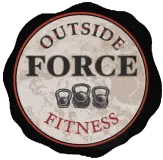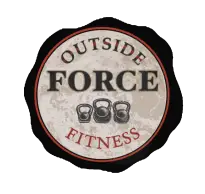One thing I had to learn on my own was the boundaries of a personal trainer’s scope of practice. You will have to learn them yourself, but here are some things to think about so that you notice when you’re approaching the boundaries of that scope.
What A Personal Trainer Is Not
Even though people will ask you to work out their problems, you’re not a psychologist.
Even though people will ask you to crack their back, you’re not a chiropractor.
Even though people will ask you to diagnose their dizziness, you’re not a doctor.
Even though people will ask you to help them with their tight shoulders, you’re not a massage therapist.
The number of odd requests I’ve fielded is crazy. In addition to the above, I’ve been asked to babysit, house sit, work at bars on the weekends, take people’s daughters and nieces out, etc.
You’ve got to set your limits. If you walk into this knowing having any idea of what to expect, then you’ll be better off than I was when I got started.
You’re Not a Psychologist
You are in the gym to help people with their bodies. It is not rocket science. Keep it simple.
Just being certified doesn’t prepare you for all of the situations you’ll encounter. People are people and some are crazier than others. It is not uncommon for someone to cry in the gym for one reason or another.
It’s best not to get too involved with the details in such situations. If there’s a pressing medical situation – call an ambulance. If someone is in danger – call the police.
If it is just an emotional individual, take them away from the group and let them get their composure. Give them a bit of time to get it together and make sure that they are okay to drive themselves home.
I’ve found that when some people workout, they are not able to keep that social facade up. That face that hides what you’re really feeling. If a girl is freaking out that she might be pregnant because she missed her period by a few days, she may let it all out at the gym. I’m not picking on girls here, I’ve watched this exact thing happen.
People often come to the gym to burn off some steam and get rid of the stress that they encountered at work. It’s okay, just give them some space to do it. People might act a little funny sometimes and talk more or less than usual.
Just do your job and give them a good workout.
Medical Concerns Beyond The Scope of Practice of a Personal Trainer
I really had to pioneer my own way through this one.
None of my earlier certifications said what to do “If your client asks you…” So I just had to wing it.
Eventually, I learned that having a set of doctors, massage therapists, chiropractors and physical therapists on call was a very, very helpful thing.
This way, when someone says, “I injured this knee back in high school and it hasn’t been the same ever since.” and they then go on to give some very detailed list of pains they are experiencing right now – you just send them to the physical therapist.
The physical therapist assesses them, writes up a program, and sends them back to you for execution and guidelines to follow while you’re training him or her. This keeps you covered legally, gets the client the best care possible, and it is the right thing to do.
Too many trainers get pulled into doing other people’s jobs just because they thing they are responsible for everything. Many times I have said, “This is outside my scope of knowledge.”
People don’t pay you to pretend that you know everything. Either you know what to do or your don’t. If you’re uncertain, send them to a specialist.
Odd Requests
There are all sorts of requests you could get from your clients that are outside the scope of practice of a personal fitness trainer.
From “Can you help rub out my calf?” to “Can you press on my back to see if it cracks?” and everything in between.
The safe bet for the first one is, “No, but I can set you up with a good massage therapist.” or “I can show you a stretch for it.”
The safe bet for the second one is, “No, but I will be happy to set you up with a great chiropractor.”
My examples above are mild and quite common. But they can get fairly goofy, like, “Can you change my bandage?”
If you understand the purpose of your job and if you always have a specialist to refer them to, then you’ll keep from falling into any odd traps.
A Good Drill
Make a list of the things that you are trained to do.
Then make a list of the things that you’re not trained to do.
Sometimes the lines between them get a bit fuzzy. If you’re a fitness trainer, you’re likely First Aid Trained, but that doesn’t mean you’re qualified to be a Wound Care Specialist. Swapping out someone’s bandages after surgery or other injury is not within your scope.
Just because you know how to stretch people doesn’t mean that you know how to massage them.
I guarantee, just sitting down and working this out for yourself will help you when your odd requests start pouring in. Plan on the weirdest requests. The more you prepare, the less surprised you’ll be.
You’ll Probably Mess Up A Few Times
I’ve learned all of the above by messing up. There were a few mentors along the way, but I didn’t run to them right at the moment and ask for advice. Just don’t do anything too stupid.
It is okay to mess up because it is okay not to know everything. Once you come across a situation you don’t know how to handle, just take it to one of your mentors or ask a specialist about it. Keep asking until you fully understand what should be done in that type of scenario.
If you do this with every odd request you get, you’ll be fine. Find out how you should have handled it, work out a good answer for any future requests and that’s that.
Conclusion
It isn’t popular to say, but newly certified personal fitness trainers don’t necessarily know all they need to in order to do their jobs, let alone have a clear boundary of what is within the scope of practice of a personal trainer. Many of them have just jumped into the health industry, so how could they possibly know?
Unless you have a good amount of experience under your belt, you’re going to mess up. The perfect course has yet to be formulated. We’ve got to plow through on our own and make our own way.
Maybe it’ll always be that way. The absolute best way is to have a mentor. Work under an experienced trainer for a while. They will keep you from making the big mistakes.
In my experience, the most important things to know are:
- How to keep from injuring your clients.
- How to help someone reach their goals.
If you’re doing that, you’ll be unstoppable.



